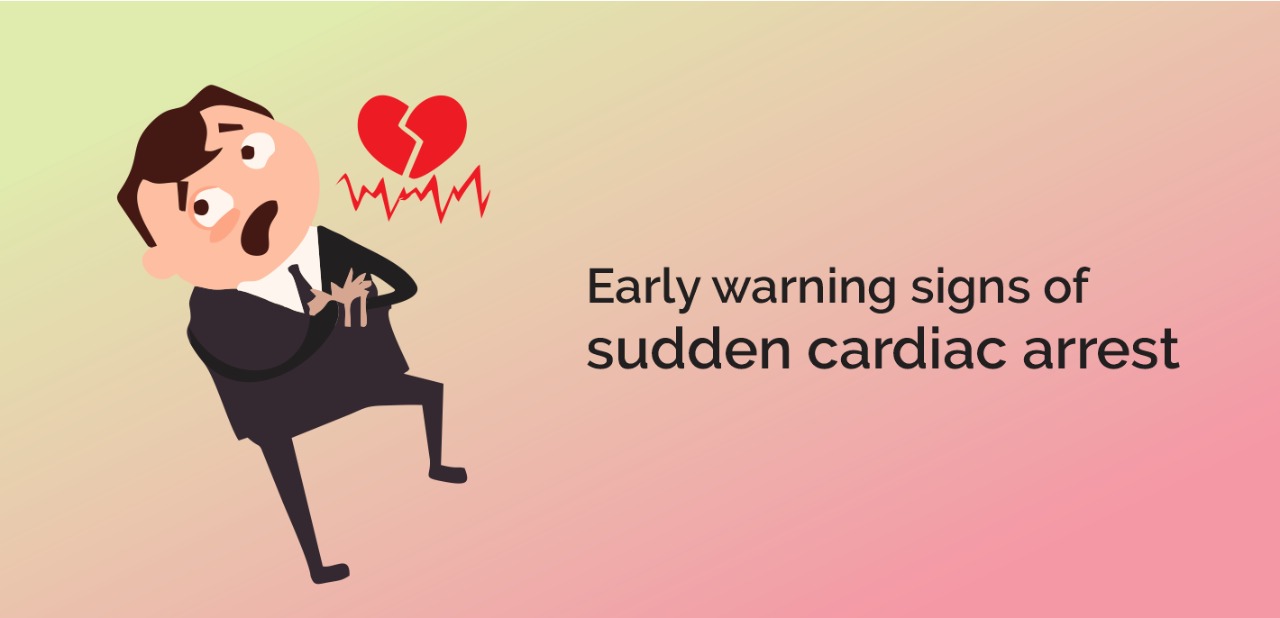

You might believe that there are no early warning signs of sudden cardiac arrest, a fatal illness that happens when your heart abruptly stops functioning. However, according to a study published in Annals of Internal Medicine on January 5, 2016, warning indicators are ubiquitous and frequently ignored.
Early warning signs of sudden cardiac arrest are subtle at times, and Assurance will help you read the signs by educating you with the informative read.
First and foremost, do not dismiss or ignore symptoms like chest pain or unexplained shortness of breath, especially if you or your loved ones have risk factors for heart disease such as a family history of cardiac issues, hypertension or high blood pressure, high cholesterol levels, diabetes, History of cigarette smoking, obesity, a sedentary lifestyle, etc.
While there are generally no warning signals before sudden cardiac arrest, some of the following symptoms may occur before it:
- Tiredness or weakness
- Breathing difficulties
- Fainting
- Feeling dizzy or lightheaded
- Palpitations in the heart chest pain
Some patients who have died of a "major heart attack" may have died of Sudden Cardiac Arrest.
Survival Prospects: The odds of surviving sudden cardiac arrest diminish by 7-10% for every minute when a life-saving shock is not administered.
Cardiopulmonary resuscitation, famously known as CPR, can help minimize the repercussions of cardiac arrest and can help in saving the person’s life. Studies have shown that CPR and defibrillator can effectively address 95% of erratic cardiac rhythms.
Signs of sudden cardiac arrest slightly differ between women and men.
In Women, chest pain (angina) or discomforts such as shortness of breath, nausea/vomiting, and back or jaw pain are the first warning signs of cardiac arrest.
Males experience angina pain or chest pain, and the rate of other signs of discomfort is less than women.
The risk factors most typically associated with heart disease are also markers of sudden cardiac arrest.
Consult a doctor if you have:
A family history of heart disease, history of smoking, elevated blood pressure, high cholesterol level, sedentary lifestyle, and obesity, and diabetes are some signs.
A family or personal history of cardiac events, a sedentary lifestyle, or nutritional imbalance are all potential risk factors.
Keeping yourself prepared at home If any of these risk factors apply to you or a loved one, it is critical to take safeguards. Adhering to the prescribed medications is a critical first step in protecting heart health. However, your doctor may also advise you to get an implanted cardioverter-defibrillator for detecting and stopping cardiac episodes.
Families can also consider purchasing an automatic external defibrillator for personal use; however, these can be expensive. These machines employ electric pulses to restart the heart in an emergency, allowing the patient to continue breathing while aid arrives.
Hypertension awareness:
Hypertension is a prime risk factor for complications linked to the cardiovascular system, such as stroke, heart attack, heart failure, and aneurysm (bulge in the wall of an artery). Keeping the blood flow at optimum pressure is essential for reducing the risks of this dangerous disease.
Consult a cardiologist with Assurance
Here is where we help and extend our services. Assurance has heart care packages that help people get screened for early warning signs of sudden cardiac arrest and hypertension through state-of-the-art diagnostics, experienced cardiologist consultations, and disease management programs.
With Assurance, you can consult a doctor anytime & anywhere for healthy wellbeing. Please do not google your symptoms because, according to the internet, every symptom is a serious ailment, and you do not want to add up the anxiety.
Hypertension blood tests:
Assurance has carefully curated diagnostic tests that can evaluate hypertension and prescribe measures to take care of your heart.
How does a hypertension blood test help?
Famously known as the silent killer, it discreetly works its way up to cause heart diseases, heart attack, kidney damage, blindness, and raises chances of stroke, which is a fatal blow.
High blood pressure for long periods means more risk. That is why blood pressure and hypertension should be monitored regularly.
Laboratory tests for Hypertension:
Assurance has curated a hypertension (BP) test package that efficiently screens for conditions that make blood pressure high or low and monitor the functions of the heart.
How can Assurance help me?
Assurance by NanoHealth provides Disease Management Programs, including PCOD care, infertility, Heart care, etc.
Why us? Our AI-driven initiative helps timely identification, diagnosis, and treatment by pairing you with the right care providers.
Our disease care management programs include:
- Regular interactions with your health coach for treatment adherence.
- Periodic doctor consultations to ensure effective treatment.
- Routine blood tests to track the progress and improvements.
Assurance is with you every step of the way until maximum health and wellness are achieved.